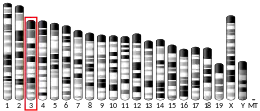| SASS6 | |||||||||||||||||||||||||||||||||||||||||||||||||||
|---|---|---|---|---|---|---|---|---|---|---|---|---|---|---|---|---|---|---|---|---|---|---|---|---|---|---|---|---|---|---|---|---|---|---|---|---|---|---|---|---|---|---|---|---|---|---|---|---|---|---|---|
| Identifiers | |||||||||||||||||||||||||||||||||||||||||||||||||||
| Aliases | SASS6, SAS-6, SAS6, MCPH14, SAS-6 centriolar assembly protein | ||||||||||||||||||||||||||||||||||||||||||||||||||
| External IDs | OMIM: 609321 MGI: 1920026 HomoloGene: 45668 GeneCards: SASS6 | ||||||||||||||||||||||||||||||||||||||||||||||||||
| |||||||||||||||||||||||||||||||||||||||||||||||||||
| |||||||||||||||||||||||||||||||||||||||||||||||||||
| |||||||||||||||||||||||||||||||||||||||||||||||||||
| |||||||||||||||||||||||||||||||||||||||||||||||||||
| |||||||||||||||||||||||||||||||||||||||||||||||||||
| Wikidata | |||||||||||||||||||||||||||||||||||||||||||||||||||
| |||||||||||||||||||||||||||||||||||||||||||||||||||
Spindle assembly abnormal protein 6 homolog (SAS-6) is a protein that in humans is encoded by the SASS6 gene.[5][6][7]
Function
SAS-6 is necessary for centrosome duplication and functions during procentriole formation; SAS-6 functions to ensure that each centriole seeds the formation of a single procentriole per cell cycle.[8]
Clinical significance
References
- 1 2 3 GRCh38: Ensembl release 89: ENSG00000156876 - Ensembl, May 2017
- 1 2 3 GRCm38: Ensembl release 89: ENSMUSG00000027959 - Ensembl, May 2017
- ↑ "Human PubMed Reference:". National Center for Biotechnology Information, U.S. National Library of Medicine.
- ↑ "Mouse PubMed Reference:". National Center for Biotechnology Information, U.S. National Library of Medicine.
- ↑ "Entrez Gene: spindle assembly 6 homolog (C. elegans)".
- ↑ Andersen JS, Wilkinson CJ, Mayor T, Mortensen P, Nigg EA, Mann M (December 2003). "Proteomic characterization of the human centrosome by protein correlation profiling". Nature. 426 (6966): 570–4. Bibcode:2003Natur.426..570A. doi:10.1038/nature02166. PMID 14654843. S2CID 4427303.
- ↑ Leidel S, Delattre M, Cerutti L, Baumer K, Gönczy P (February 2005). "SAS-6 defines a protein family required for centrosome duplication in C. elegans and in human cells". Nat. Cell Biol. 7 (2): 115–25. doi:10.1038/ncb1220. PMID 15665853. S2CID 4634352.
- ↑ Strnad P, Leidel S, Vinogradova T, Euteneuer U, Khodjakov A, Gönczy P (August 2007). "Regulated HsSAS-6 levels ensure formation of a single procentriole per centriole during the centrosome duplication cycle". Dev. Cell. 13 (2): 203–13. doi:10.1016/j.devcel.2007.07.004. PMC 2628752. PMID 17681132.
- ↑ Khan, M. A.; Rupp, V. M.; Orpinell, M; Hussain, M. S.; Altmüller, J; Steinmetz, M. O.; Enzinger, C; Thiele, H; Höhne, W; Nürnberg, G; Baig, S. M.; Ansar, M; Nürnberg, P; Vincent, J. B.; Speicher, M. R.; Gönczy, P; Windpassinger, C (2014). "A missense mutation in the PISA domain of HsSAS-6 causes autosomal recessive primary microcephaly in a large consanguineous Pakistani family". Human Molecular Genetics. 23 (22): 5940–9. doi:10.1093/hmg/ddu318. PMID 24951542.
Further reading
- Dammermann A, Müller-Reichert T, Pelletier L, et al. (2004). "Centriole assembly requires both centriolar and pericentriolar material proteins". Dev. Cell. 7 (6): 815–29. doi:10.1016/j.devcel.2004.10.015. PMID 15572125.
- Kleylein-Sohn J, Westendorf J, Le Clech M, et al. (2007). "Plk4-induced centriole biogenesis in human cells". Dev. Cell. 13 (2): 190–202. doi:10.1016/j.devcel.2007.07.002. PMID 17681131.
- Habedanck R, Stierhof YD, Wilkinson CJ, Nigg EA (2005). "The Polo kinase Plk4 functions in centriole duplication". Nat. Cell Biol. 7 (11): 1140–6. doi:10.1038/ncb1320. PMID 16244668. S2CID 1349505.
- Lunardi A, Di Minin G, Provero P, et al. (2010). "A genome-scale protein interaction profile of Drosophila p53 uncovers additional nodes of the human p53 network". Proc. Natl. Acad. Sci. U.S.A. 107 (14): 6322–7. Bibcode:2010PNAS..107.6322L. doi:10.1073/pnas.1002447107. PMC 2851947. PMID 20308539.
- Strausberg RL, Feingold EA, Grouse LH, et al. (2002). "Generation and initial analysis of more than 15,000 full-length human and mouse cDNA sequences". Proc. Natl. Acad. Sci. U.S.A. 99 (26): 16899–903. Bibcode:2002PNAS...9916899M. doi:10.1073/pnas.242603899. PMC 139241. PMID 12477932.
- Sowa ME, Bennett EJ, Gygi SP, Harper JW (2009). "Defining the human deubiquitinating enzyme interaction landscape". Cell. 138 (2): 389–403. doi:10.1016/j.cell.2009.04.042. PMC 2716422. PMID 19615732.
- Tang CJ, Fu RH, Wu KS, et al. (2009). "CPAP is a cell-cycle regulated protein that controls centriole length". Nat. Cell Biol. 11 (7): 825–31. doi:10.1038/ncb1889. PMID 19503075. S2CID 7478662.
- Gregory SG, Barlow KF, McLay KE, et al. (2006). "The DNA sequence and biological annotation of human chromosome 1". Nature. 441 (7091): 315–21. Bibcode:2006Natur.441..315G. doi:10.1038/nature04727. PMID 16710414.
This article incorporates text from the United States National Library of Medicine, which is in the public domain.
This article is issued from Wikipedia. The text is licensed under Creative Commons - Attribution - Sharealike. Additional terms may apply for the media files.



